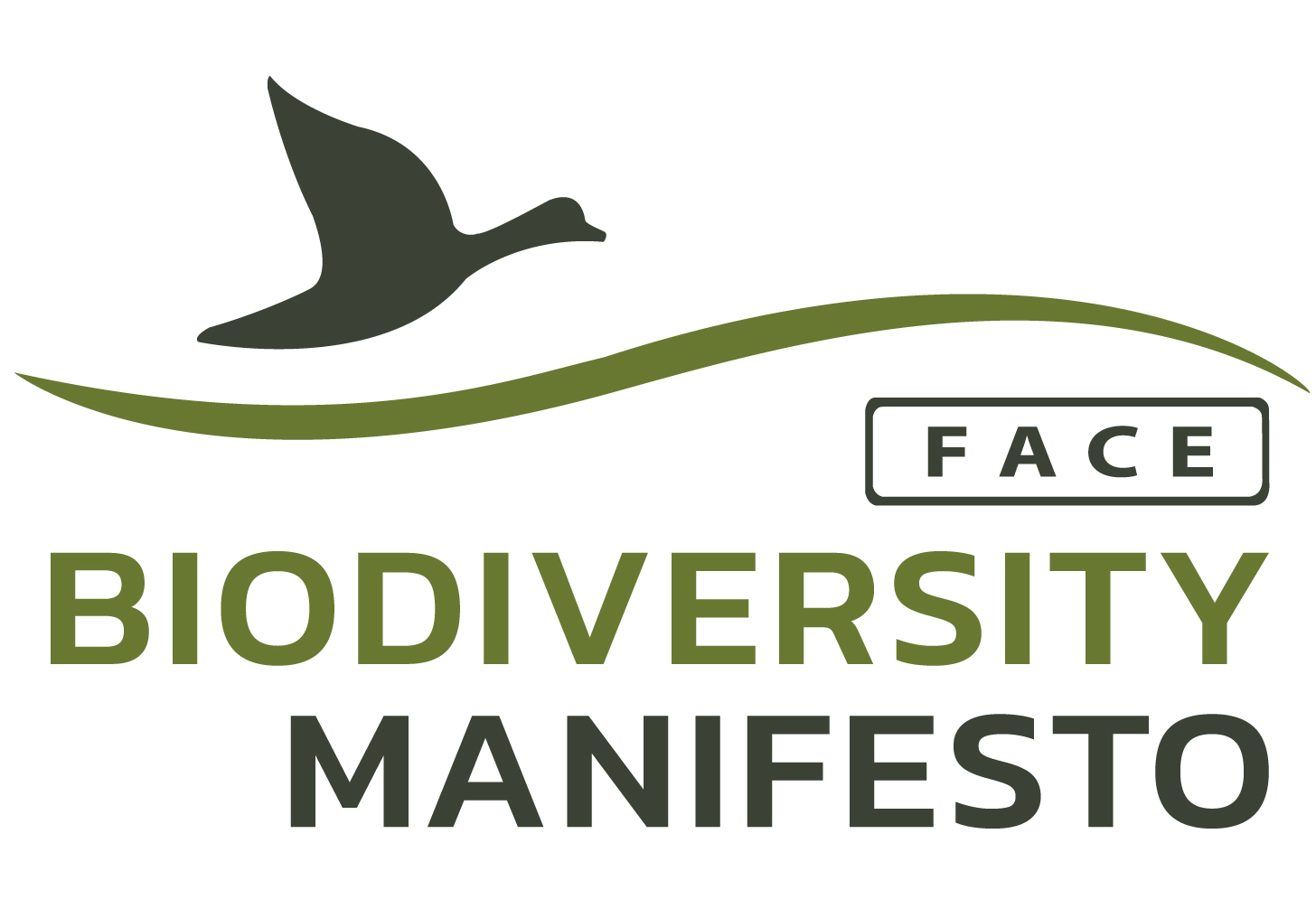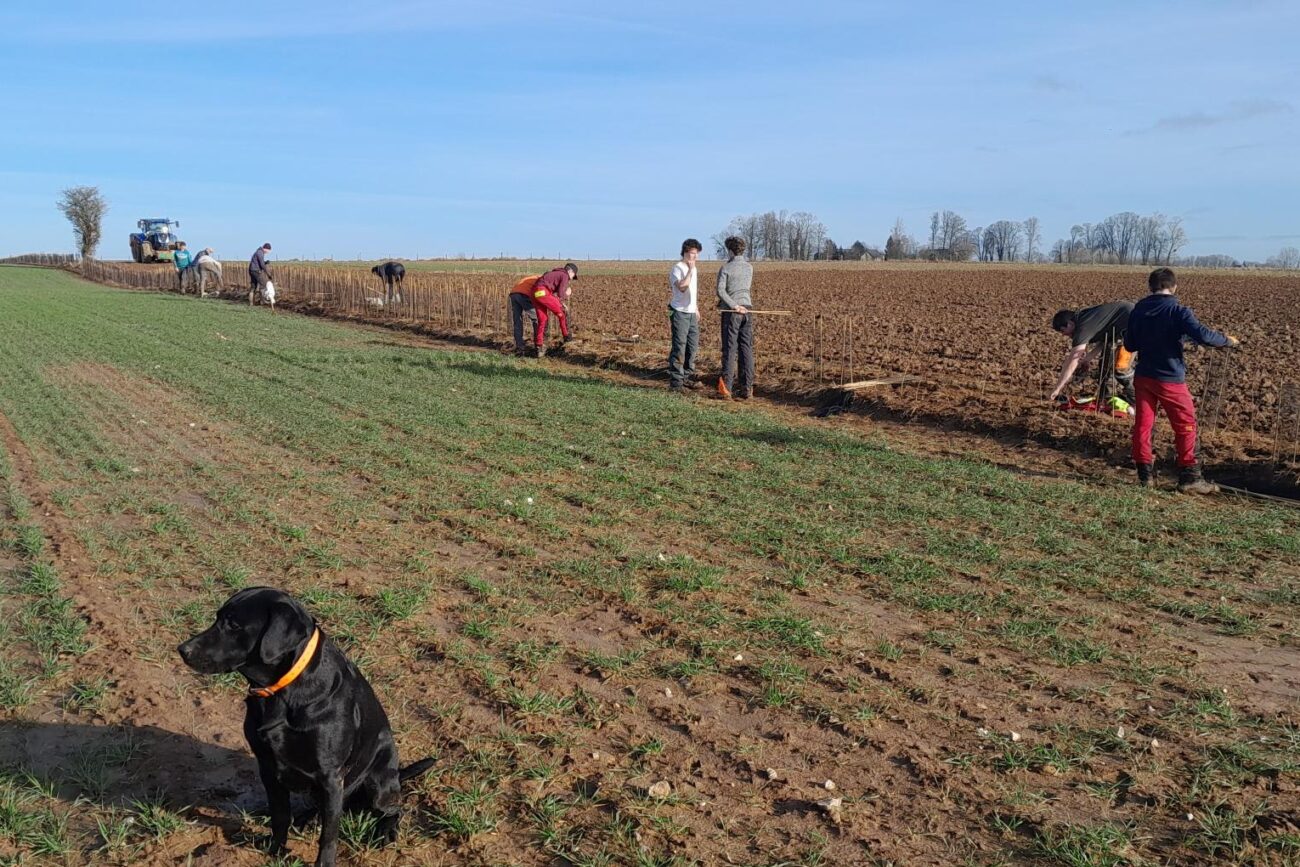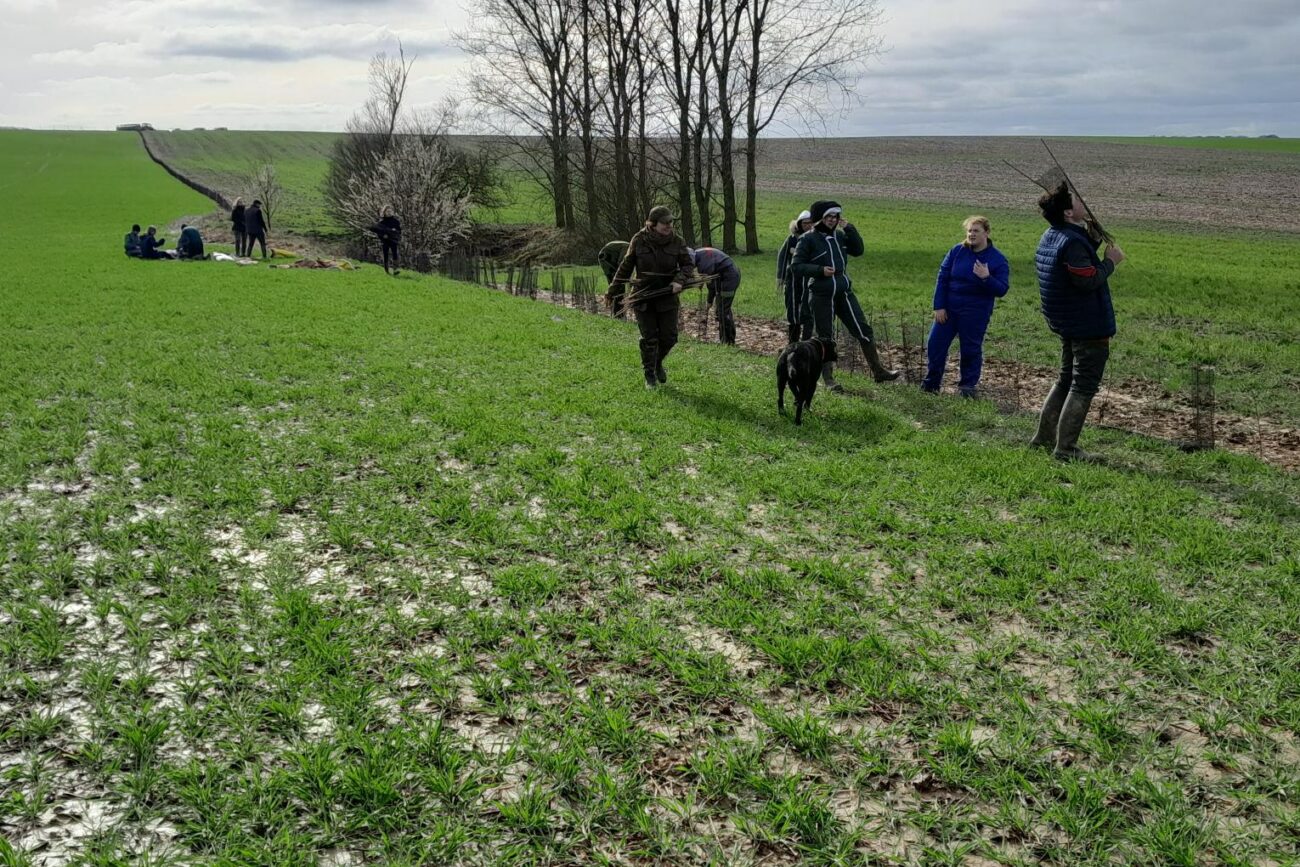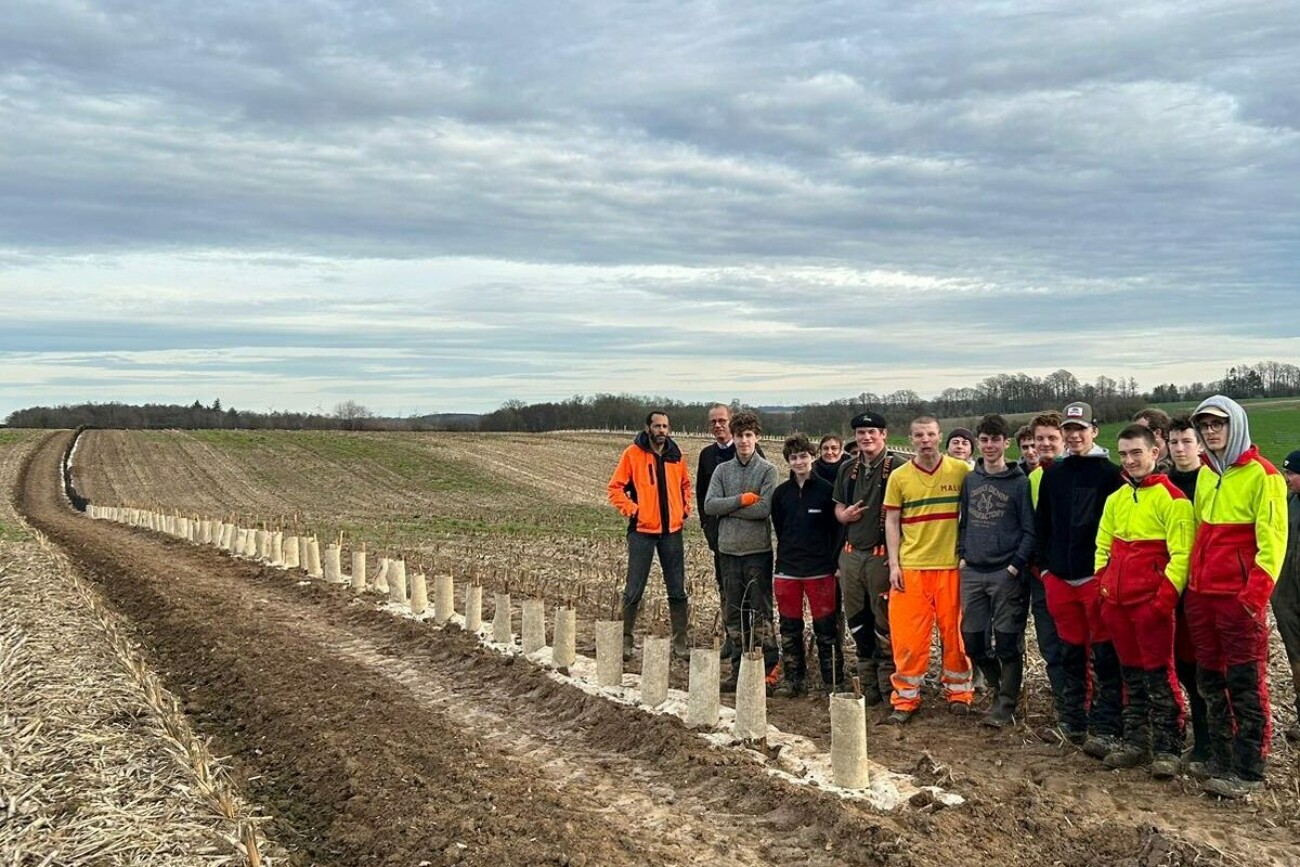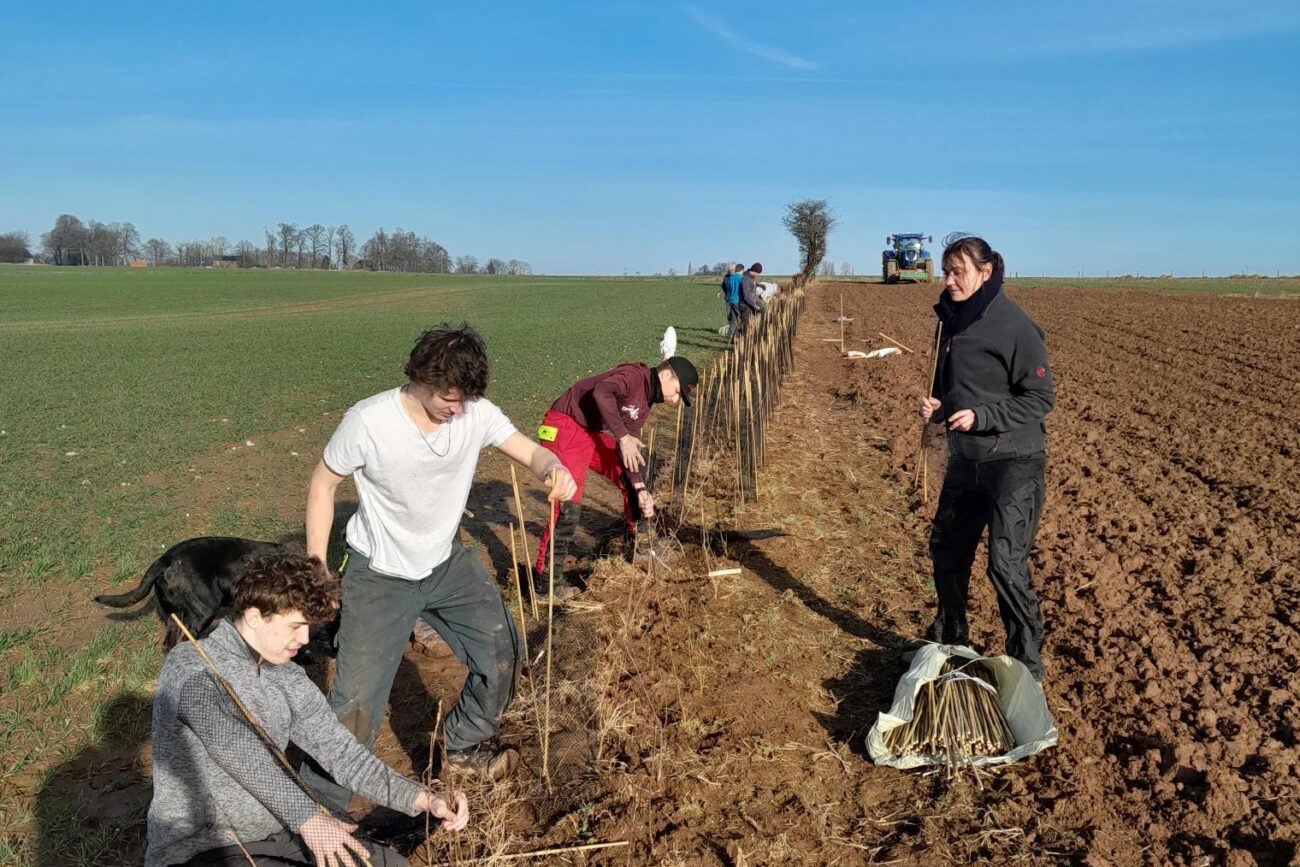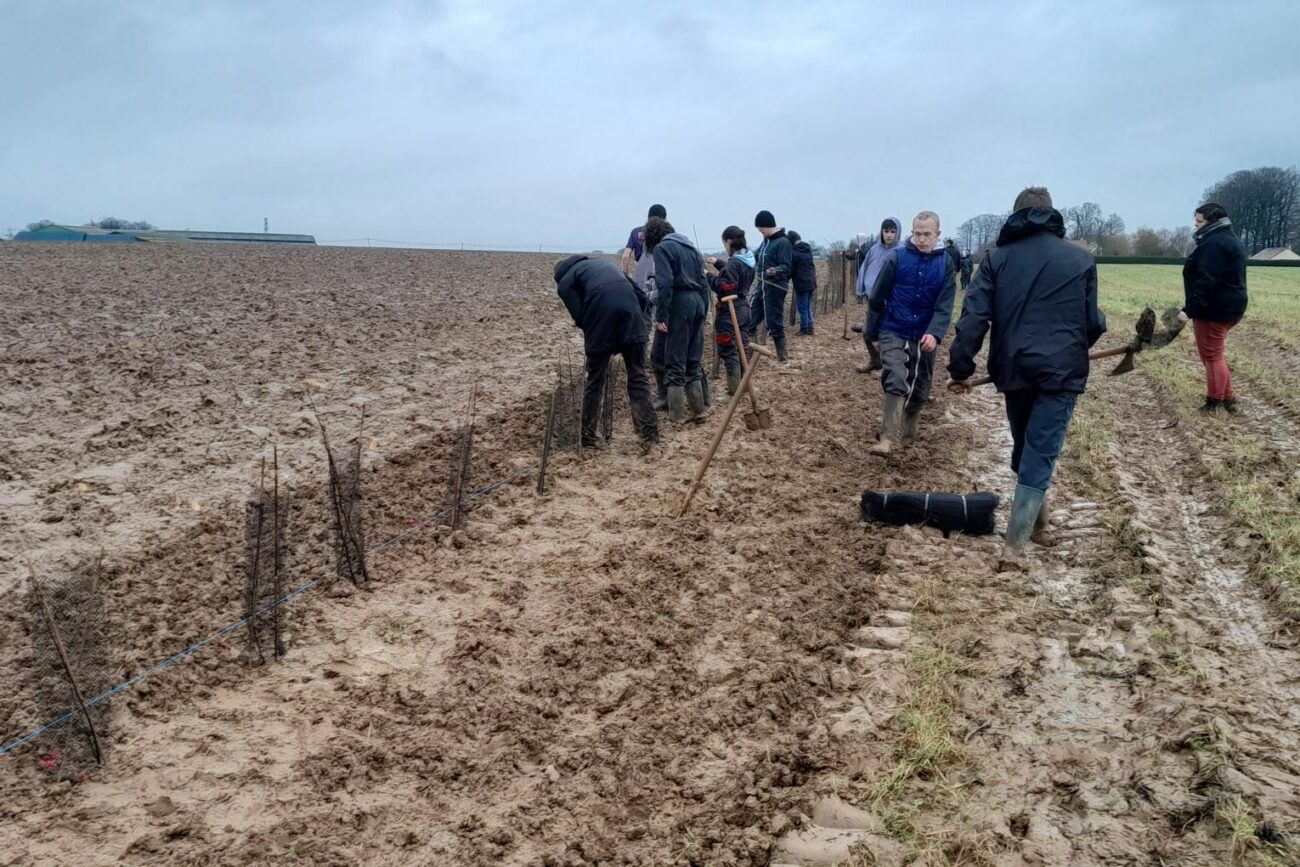In a significant step towards ecological restoration and biodiversity enhancement, close to 10 kilometers of hedges have been planted or funded by FDC76 during the 2023/2024 campaign. This initiative, which forms a vital part of the broader effort to regenerate cultivated plains, which we covered in our Sensibilie’Haie project. It has all been made possible through the collaboration of dedicated volunteer farmers, financial support from Ecocontribution, and the invaluable assistance of various technical and institutional partners.
A Collective Effort Rooted in Community
The success of this project is a testament to the power of community-driven action. Volunteer hunters and farmers played a pivotal role, dedicating their time and resources to ensure the successful planting of these hedges. These efforts were further bolstered by financial and technical contributions from a range of partners, creating a strong network of support for the project.
Several educational institutions, including Maison Familiale Rurale de La Cerlangue , MFR de Buchy , ️ Institut Saint Joseph, château de Mesnières en Bray , Lycée des Métiers du Bois d’Envermeu, actively participated in the initiative. These collaborations provided students with hands-on experience in ecological practices, making the hedge plantations not just a conservation effort but also a valuable educational opportunity.
Institutional partners, such as Le Havre Seine Metropole, various Basin Versant Syndicates, and several municipalities, also played crucial roles in facilitating the project. Their support helped to expand the impact of the hedge plantations, ensuring that the benefits of increased biodiversity and environmental sustainability could be realized across a broader area.
Policy Relevance
The hedge plantation project resonates strongly with the European Union’s environmental and agricultural policies, particularly within the framework of the EU Green Deal. The Green Deal emphasizes the need for sustainable agriculture, biodiversity protection, and climate action, all of which are central to this initiative.
The EU’s Biodiversity Strategy for 2030, a core component of the Green Deal, calls for the restoration of degraded ecosystems, including the expansion of green infrastructure like hedges. By creating ecological corridors and enhancing biodiversity on agricultural land, the FDC76 hedge plantation project directly contributes to these EU objectives. Moreover, this initiative supports the Common Agricultural Policy (CAP), which encourages practices that maintain and enhance biodiversity on farmlands across Europe.
Enhancing Biodiversity Through Hedge Plantations
The planting of hedges is a strategic approach to enhancing biodiversity in agricultural landscapes. Hedges serve as important ecological corridors, providing habitats for a variety of species, including birds, insects, and small mammals. They also contribute to soil stabilization, reduce wind erosion, and help to manage water flow, thereby improving the overall resilience of the landscape.
This initiative aligns with broader environmental goals and reflects a growing recognition of the importance of integrating biodiversity into agricultural practices. By restoring these natural features, the project not only supports local ecosystems but also contributes to the long-term sustainability of farming in the region.
In conclusion, the FDC76 hedge plantation initiative is a shining example of how local actions can have a profound impact on the environment, education, and community well-being. With the continued support of farmers, institutions, and policymakers, such efforts will play a crucial role in shaping a more sustainable and biodiverse future.
For more information please check out:
